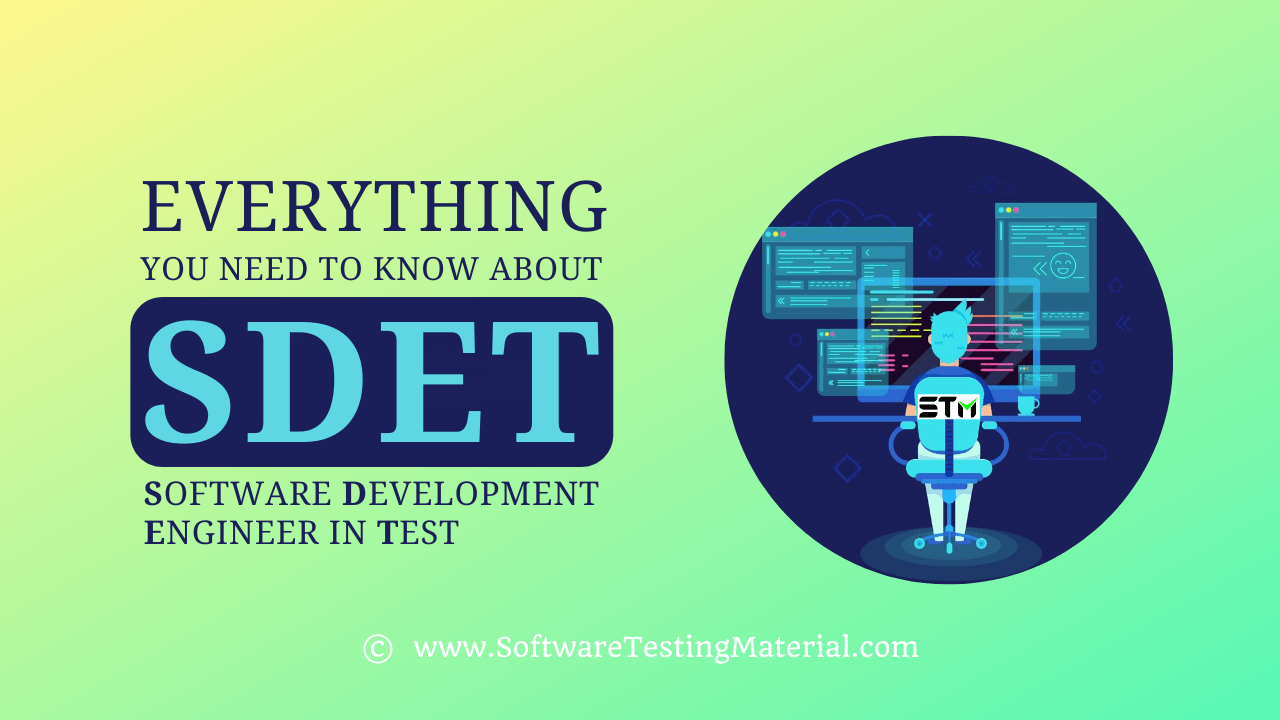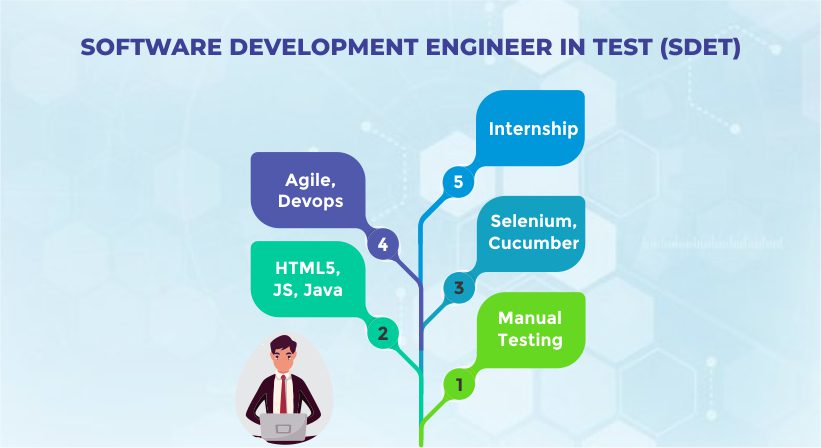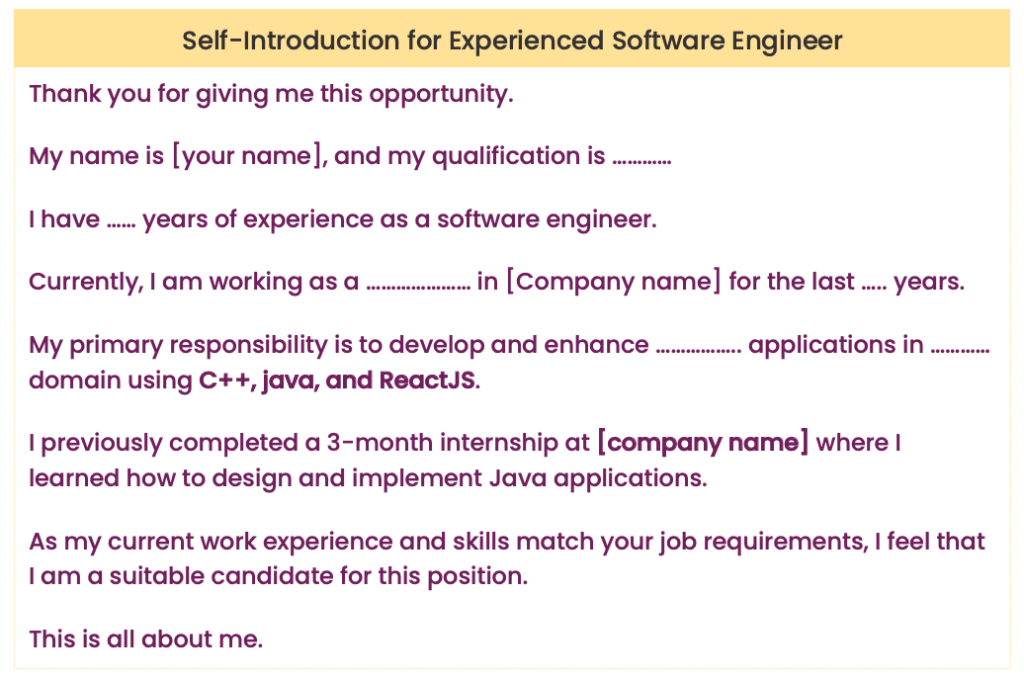Software development engineer in test interview questions – Embark on a comprehensive journey into the realm of Software Development Engineer in Test (SDET) interview questions. This guide delves into the intricacies of the SDET interview process, equipping you with the knowledge and confidence to excel in your next technical assessment.
Within these pages, you’ll discover an array of commonly asked interview questions, categorized by difficulty level, providing a roadmap for your preparation. We’ll explore the essential skills and knowledge required for SDETs, encompassing both technical proficiency and interpersonal qualities.
Types of Software Development Engineer in Test (SDET) Interview Questions

Interviews for Software Development Engineers in Test (SDETs) typically assess technical skills, problem-solving abilities, and knowledge of software testing principles.
Questions vary in difficulty, ranging from basic concepts to complex technical scenarios. Understanding the types of questions asked can help candidates prepare effectively.
Question Categories
- Easy:Foundational concepts, basic testing techniques
- Medium:Intermediate testing knowledge, problem-solving scenarios
- Hard:Advanced testing principles, complex technical challenges
Specific Question Examples, Software development engineer in test interview questions
Easy:
- Define software testing and explain its purpose.
- Describe different types of software testing.
- What is a test case and how do you write one?
Medium:
- Explain the difference between functional and non-functional testing.
- Discuss the importance of test automation and provide examples.
- Describe the role of SDETs in agile software development.
Hard:
- Explain the concept of test coverage and how to measure it.
- Discuss advanced testing techniques such as exploratory testing and chaos engineering.
- Provide an example of a complex testing scenario and describe how you would approach it.
Essential Skills and Knowledge for SDETs: Software Development Engineer In Test Interview Questions

SDETs require a combination of technical skills and knowledge to perform their roles effectively. These include both hard skills, such as programming languages and testing tools, and soft skills, such as communication and problem-solving.
Hard Skills
SDETs should have a strong foundation in programming languages used for software development, such as Java, Python, or C++. They should also be proficient in testing tools and techniques, including automated testing frameworks (e.g., Selenium, Appium), performance testing tools (e.g., JMeter, LoadRunner), and debugging tools (e.g., GDB, LLDB).
Soft Skills
In addition to technical skills, SDETs also need strong soft skills, including communication, problem-solving, and teamwork. They should be able to communicate effectively with developers, testers, and other stakeholders to ensure that the software meets requirements and is of high quality.
They should also be able to solve problems independently and as part of a team.
Best Practices for Preparing for SDET Interviews
Preparing for SDET interviews requires a comprehensive approach. By researching the company, practicing technical questions, and developing a strong resume and cover letter, you can increase your chances of success.
Research the Company
- Visit the company’s website to learn about its products, services, and culture.
- Check LinkedIn to connect with employees and learn about the company’s work environment.
- Read industry publications and news articles to stay updated on the company’s latest developments.
Practice Technical Questions
SDET interviews often involve technical questions related to testing methodologies, automation tools, and programming languages. To prepare:
- Review your knowledge of testing concepts, such as black box and white box testing.
- Practice using automation tools, such as Selenium and Appium.
- Refresh your programming skills, especially in languages commonly used in SDET roles, such as Java, Python, and C++.
Develop a Strong Resume and Cover Letter
Your resume and cover letter should highlight your relevant skills and experience. For your resume:
- Quantify your accomplishments using specific metrics.
- Use s related to SDET roles, such as “automation testing,” “performance testing,” and “test management.”
- Tailor your resume to each job you apply for, highlighting the skills and experience that are most relevant.
For your cover letter:
- State why you are interested in the position and company.
- Highlight your key skills and experience that make you a suitable candidate.
- Proofread carefully before submitting your cover letter.
Common Interview Questions and Answers

SDET Interview Questions and Answers
During SDET interviews, candidates may encounter various questions that assess their technical knowledge, problem-solving abilities, and understanding of SDET principles.
Below is a table outlining some common SDET interview questions, their difficulty levels, sample answers, and explanations:
| Question | Difficulty Level | Sample Answer | Explanation |
|---|---|---|---|
| Describe the different types of testing you have performed in your previous role. | Easy | In my previous role, I was responsible for executing various types of testing, including functional testing, performance testing, security testing, and automation testing. I have experience in both manual and automated testing techniques. | This question assesses the candidate’s experience and knowledge of different testing types. The answer should highlight the candidate’s familiarity with a range of testing methodologies. |
| How do you approach test case design? | Medium | I follow a structured approach to test case design, which involves identifying test objectives, analyzing requirements, and defining test scenarios. I use techniques such as boundary value analysis, equivalence partitioning, and state transition testing to ensure comprehensive coverage. | This question evaluates the candidate’s understanding of test case design principles and their ability to apply them in practice. The answer should demonstrate a systematic and thorough approach to test case creation. |
| Explain the role of automation in SDET. | Medium | Automation plays a crucial role in SDET by enabling efficient and repeatable testing. It helps reduce manual effort, improve test coverage, and enhance overall testing effectiveness. I have experience in using various automation tools and frameworks to automate test cases and streamline the testing process. | This question assesses the candidate’s knowledge of automation in SDET and their ability to articulate its benefits. The answer should highlight the advantages of automation and the candidate’s experience in using automation tools. |
| How do you handle defects and ensure their resolution? | Hard | I follow a rigorous defect management process that involves logging defects, analyzing their impact, and prioritizing their resolution. I work closely with developers to provide clear and detailed defect reports and track their progress until they are resolved. | This question evaluates the candidate’s ability to manage defects effectively. The answer should demonstrate a structured and systematic approach to defect handling and resolution. |
Advanced Interview Questions and Discussion Topics

Advanced interview questions for SDETs delve into specific areas of expertise, emerging technologies, and industry trends. These questions assess a candidate’s in-depth knowledge and ability to think critically about the field.
Questions may cover topics such as:
Emerging Technologies
- Discuss the impact of artificial intelligence (AI) and machine learning (ML) on software testing.
- Explain how cloud computing has transformed the testing landscape.
- Describe the benefits and challenges of using blockchain technology in software testing.
Best Practices
- Analyze the advantages and disadvantages of different test automation frameworks.
- Discuss the principles of performance testing and load testing.
- Explain the importance of security testing and how to incorporate it into the testing process.
Industry Trends
- Identify the latest trends in software development and how they impact testing.
- Discuss the role of agile methodologies in software testing.
- Explain the importance of continuous testing and how to implement it effectively.
Wrap-Up
 (2).jpg)
As you navigate the nuances of SDET interviews, remember that preparation is paramount. By honing your technical abilities, researching the company, and presenting yourself professionally, you can increase your chances of success. Embrace the challenges of these interviews with confidence, knowing that you possess the knowledge and skills to make a lasting impression.
FAQ Explained
What are the key differences between manual and automated testing?
Manual testing involves human execution of test cases, while automated testing utilizes tools and scripts to perform the same tasks.
Describe the role of a SDET in the software development lifecycle.
SDETs collaborate with developers and testers throughout the development process, ensuring software quality, identifying defects, and contributing to product improvement.
